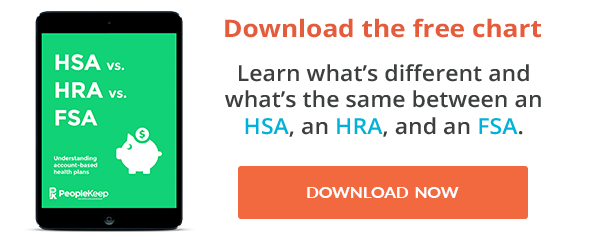The IRS recently announced health savings account (HSA) rules and requirements for 2016. This article examines the HSA contribution limits, minimum required HDHP deductibles, and out-of-pocket maximums for 2016 set annually by the Internal Revenue Service (IRS).
2016 annual HSA contribution limits 
For calendar year 2016, HSA contribution limits are annual
-
The individual (self-only coverage) - $ 3.350 (no change from 2015)
-
family coverage - $ 6.750 (up $ 100 from 2015)
2016 HDHP minimum deductible required
for calendar year 2016, the high Deductible health Plan (HDHP) franchises are required for an HSA:
-
$ 1.300 for self-only coverage (no change from 2015)
-
$ 2.0 for coverage family (no change from 2015)
2016 HDHP maximum out-of-Pocket
The report annual out-of-pocket expenses include deductibles, co-payments, and other amounts, but not premiums.
for the calendar year 2016, out-of-pocket maximums are:
-
$ 6,550 for self-only coverage (up to $ 100 from 2015)
-
$ 13,100 for family coverage (up to $ 0 in 2015)
If you use an HSA to pay for non-qualified medical expenses, the tax penalty is 20% of the HSA distribution
Related -. IRS Publication 969 - Guidelines for HSA, HRA, and FSA MSAs
Background information on Health Savings Accounts
accounts health savings or HSA, is a popular type of repayment plan for medical expenses . HSA are individual bank accounts belonging to employees that allow the payment or reimbursement of eligible medical expenses tax free. The employer usually provides a high deductible HSA qualified health plan and HSA.
US Federal regulations require citizens to have a minimum deductible on their health insurance from all sources to make tax-deductible contributions to their health savings accounts ( HSA)
Related -. Health Savings Accounts (HSA) - 10 FAQ
HSA combine the advantages of both traditional and Roth 401 (k) s and IRAs for medical expenses. Taxpayers receive a 100% deduction of income tax on annual contributions, they can withdraw HSA tax-free funds to pay qualified medical expenses, and they can postpone taking such reimbursements indefinitely without penalties .
HSAs are "IRA on steroids" -with only triple tax advantages:
-
deductible contributions to tax
-
tax-free accumulation of interest and dividends, and tax-free
-
tax-free distributions for qualified medical expenses.
2016 HSA guidelines were released by the IRS in Revenue Procedure 2015-30 .
In 2015 the rules and HSA requirements, see: HSA 2015 rules and requirements
questions about the health savings account. (HSA) guidelines for 2016? Leave a question and we will help you answer.



0 Komentar